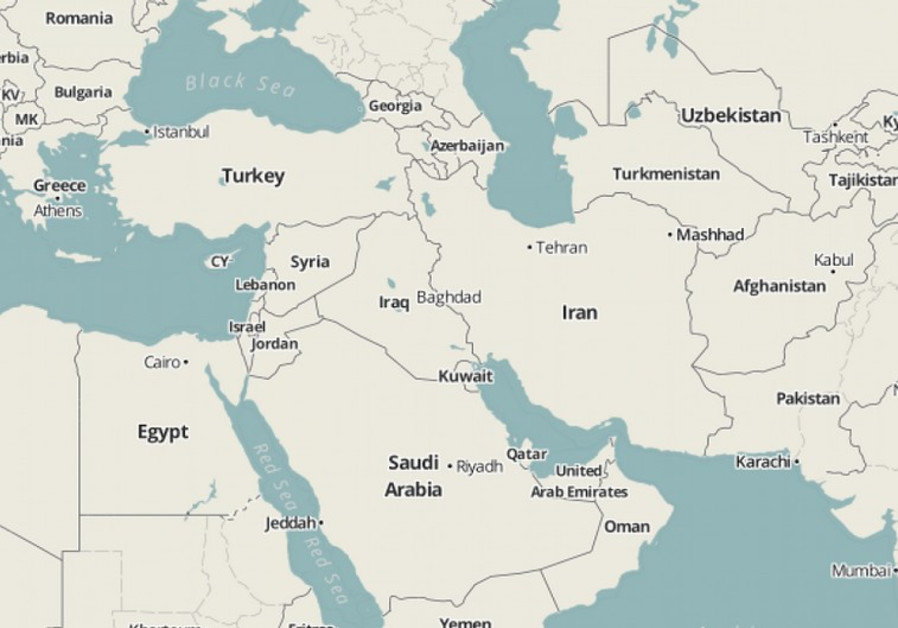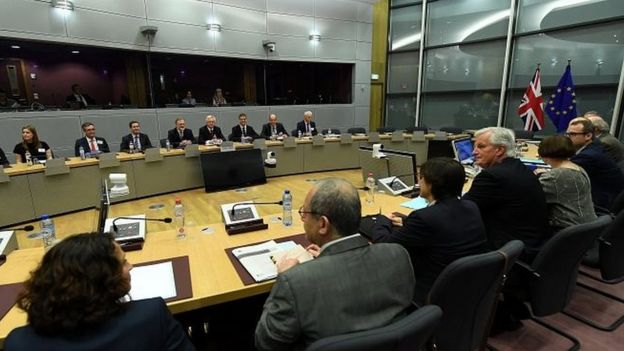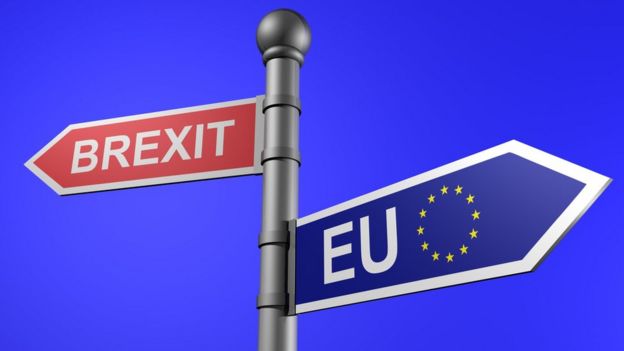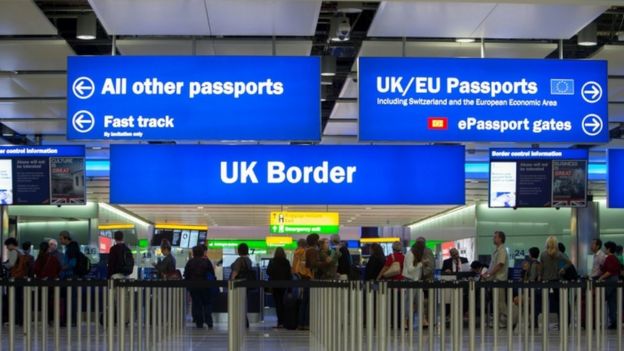The country in crisis this week is no where near either Saudi Arabia nor the United Kingdom. This week we will be analyzing the state (and lack there of) of Venezuela. Venezuela is another country that is in some deep trouble these days. The problems that are facing Venezuela are mostly economic but have led to various sever consequences throughout the state.
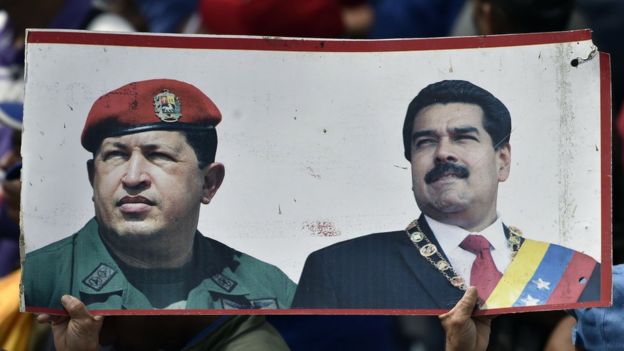
Problems began in Venezuela in 1999 when Hugo Chávez was elected President of Venezuela. When Chávez was elected, there was a large economic gap in the country and many socialist reforms were put in place in an attempt to lessen the gap. One such example was putting a price cap on basic goods like flour and toiletries. These efforts, however, ultimately backfired as it led to people no longer producing these goods as they were unprofitable with the caps in place. Succeeding Chávez is Nicolás Maduro who followed the same style of socialist policies as his predecessor.
Venezuela’s economy was once one of the best within the South American region. This was largely due in part due to the fact that Venezuela possess the largest oil reserves in the world (sorry Saudi Arabia you are only in second place) and thus got to experience large economic growth exporting oil to other countries. The revenue from this allowed the government to fund various programs, and for a brief period Venezuela was prosperous. However, Venezuela relied too heavily on its oil production for revenue. When the crude oil prices plummeted in 2014, Venezuela’s economy was crippled as oil accounts for 96% of Venezuela’s exports.
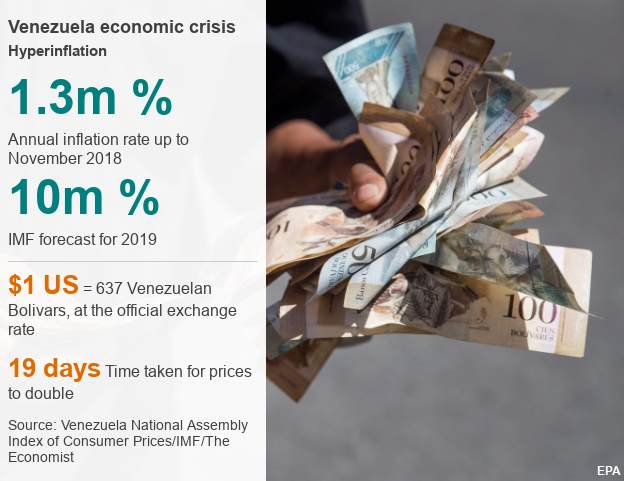
Since the collapse of oil prices in 2014, the Venezuelan economy has gone into a spiral. Inflation has reached an all time high of 1,300,000% (1.3 million percent) in the country. To put that into perspective one cup of coffee would double in price in-between the time you received your biweekly paycheck. Because of this the most basic goods are hard to come by; the citizens of Venezuela are struggling to buy necessities such as food and medicine. Even things like condoms are considered a luxury- creating a larger problem with unwanted pregnancies, more mouths to feed, and the spread of diseases. Furthermore, without the ability to possess enough capital to afford medicine, many people in Venezuela are dying of various illnesses.
Since then there has been a large increase in migration of Venezuelan citizens to the surrounding countries within South America. The most popular destination to migrate to is Colombia. Sometimes full families go and sometimes just one parent will go to find work in another country and send their remittances back to their family. So far, over 3 million people have fled Venezuela due to the economic crisis.

It is clear to see why the citizens of Venezuela would be angry with their current government- they can’t even afford the most basic goods in life. There have been numerous protests throughout the country in recent years, a few even resulting in deaths of protestors. Protests have struck another high point within the country- this time due to strains on the current election system in Venezuela. In May of 2018 elections were held and Maduro was re-elected to a second term of six years. However, the results of this election are highly contested because he faced little to none opposition.
Maduro did not face limited opposition because his citizens believed he was competent in running the country. Rather, his election was a result due to the fact that he eliminated any forms of opposition that were credible threats to his re-election campaign. He barred some opponents from running, jailed others, and other ones fled the country out of fear of being jailed or worse. Therefore, many of the opposition claimed that the election was not fair nor free.
Furthermore, the citizens of Venezuela felt as if though the actual democracy was falling apart in Venezuela. Originally there was the president and the National Assembly that would work together to make laws for the country. The Venezuelan people were actually successful in electing opponents of Maduro to the National Assembly. Because of this however, Maduro created the National Constituent Assembly in 2017 that was comprised of government loyalists and took over most of the duties of the National Assembly, thus making them powerless.
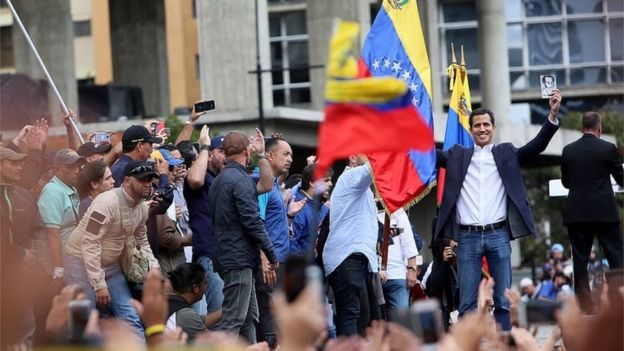
Most recently, president of the National Assembly, Juan Guaidó declared himself acting (interim) President of Venezuela. Using articles 233 and 333 of the constitution of Venezuela he declared that he had power to become the temporary President. Obviously, Maduro denies the legitimacy of these claims and (so far) the military of Venezuela sides with him.
Internationally, though, is a different story. Guaidó has gained support from multiple other leaders within Latin America and other international leaders. Most importantly, he received support from the United States, with President Trump himself tweeting out his support. This led to backlash against the United States from Maduro and Russia. Maduro claims the US is behind attempts to oust him from power (given the history of the US interfering in Latin American affairs for its benefit this isn’t a stretch) and broke off diplomatic relations with the US, giving them 72 hours to leave the country. Russia has backed Maduro and has advised the US to not interfere and called “the attempt to usurp the top power in Venezuela as going against the foundations and principles of the international law.”
All images courtesy of BBC unless linked otherwise.




